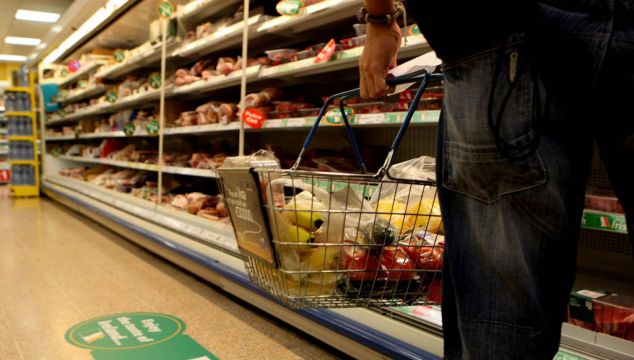Ireland’s cost-of-living crisis worsened last month as inflation surged to a 22-year high, with prices rising by 6.7 per cent in the year to March 2022.
It is the highest rate of inflation seen since November 2000 - when annual inflation stood at seven per cent - and a rise from 5.6 per cent in the year to February.
It comes after the Central Bank warned on Tuesday that inflation could rise to over eight per cent in the summer.
The latest figures from the Central Statistics Office (CSO)’s consumer price index show the largest price increases in the 12 months to March were recorded in transport, up more than 18 per cent overall, and energy costs, up almost 47 per cent year-on-year.
The cost of alcohol and tobacco also rose by seven per cent in the same period.
The CSO also examined the costs of some staple items, finding that the national average price for a large white sliced pan of bread was up 13.6 cent in the year to February 2022, while the price for a brown sliced pan was up 20.6 cent.
The price of a fresh fillet of cod per kg increased by 23.3 cent in the year, while the average price for 2.5kg of potatoes decreased by 18.2 cent.
The national average price of a take-home 50cl can of lager at €2.18 was up 26.8 cent on average from February last year, while a take home 50cl can of cider at €2.36 was up 13.5 cent.
Major monthly increase
CSO statistician Colin Cotter said prices have now been rising on an annual basis since April last year, “with annual inflation of five per cent or more each month since October.”
"The annual change in transport costs reflects a rise in the cost of diesel (up 46 per cent), petrol (up 35.2 per cent) and airfares (up 69.2 per cent) compared to March 2021," he said.
“Increased energy costs are reflected in the yearly increase of housing, water, electricity, gas and other fuels with electricity up 22.4 per cent, gas up 27.9 per cent, liquid fuels (home heating oil) up 126.6 per cent and solid fuels up 20.5 per cent in the year.”
The increase in prices between February and March this year was 1.9 per cent overall - the largest monthly increase since 1997.

The sectors with the largest price increases in the month were housing, electricity and other fuels – up five per cent – and transport – also up five per cent.
Mr Cotter said housing and fuel costs rose due to an increase in the cost of home heating oil, which rose 58.5 per cent, solid fuels, which rose 11.6 per cent, and higher rents, which rose 0.8 per cent.
Transport prices increased due to higher prices for diesel (up 17.3 per cent), petrol (up 10.2 per cent) and airfares (up 18.2 per cent) when compared to February 2022.
The largest monthly decrease was seen in clothing and footwear, with Mr Cotter attributing the drop of 0.9 per cent in costs to clothing sales.







